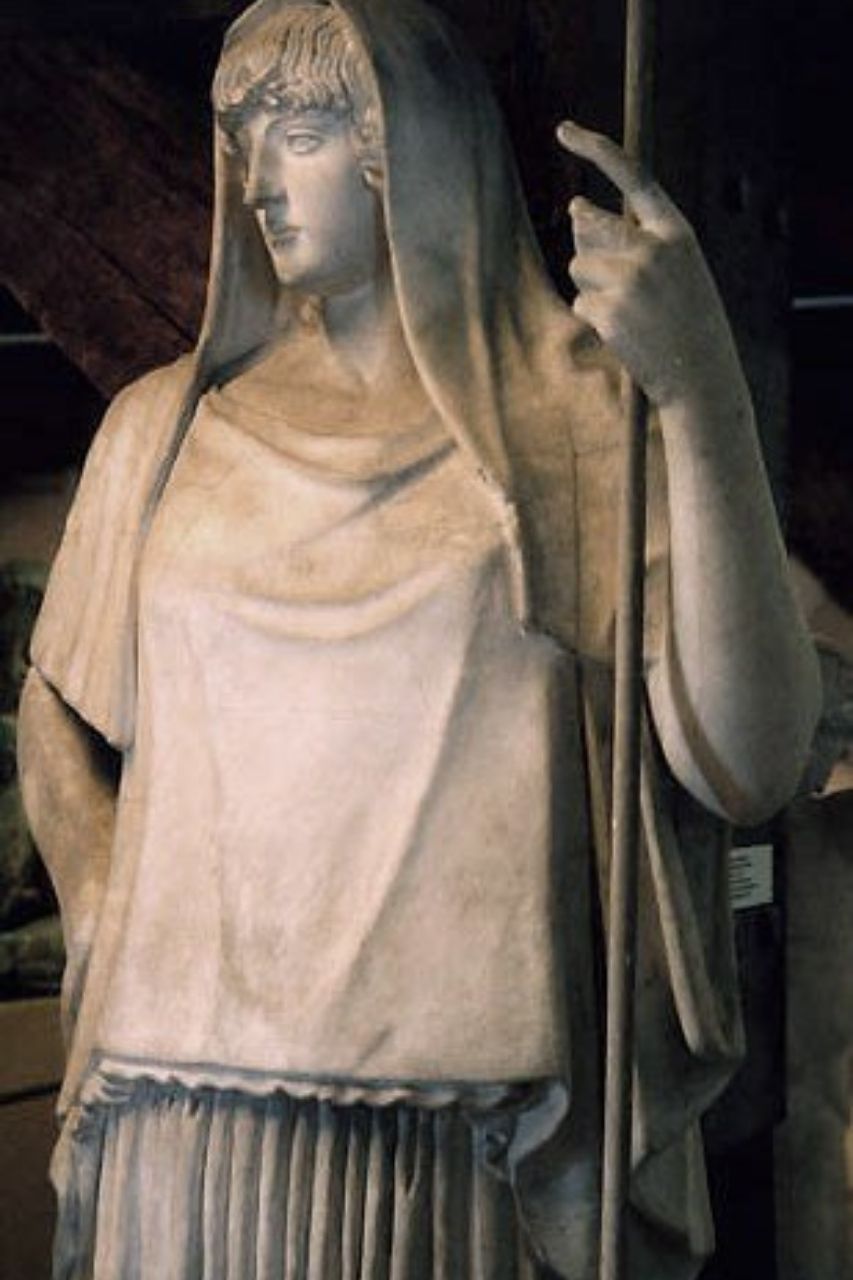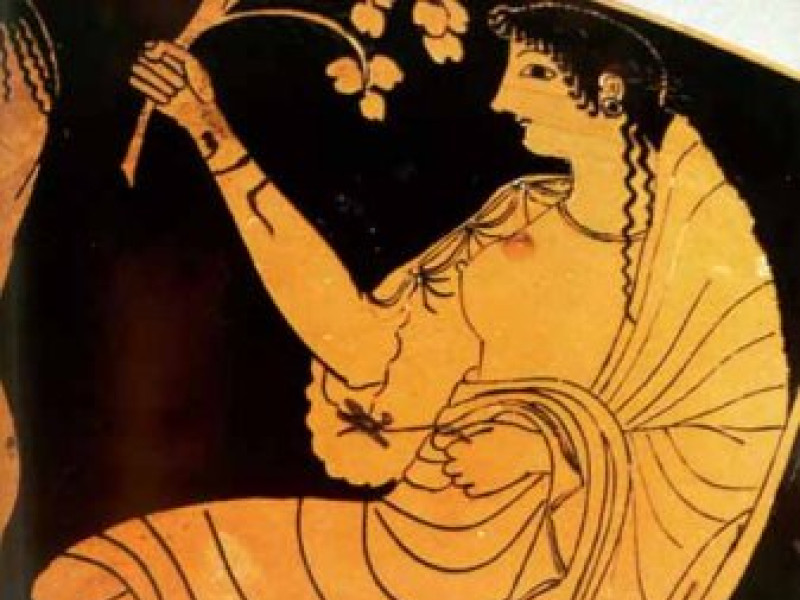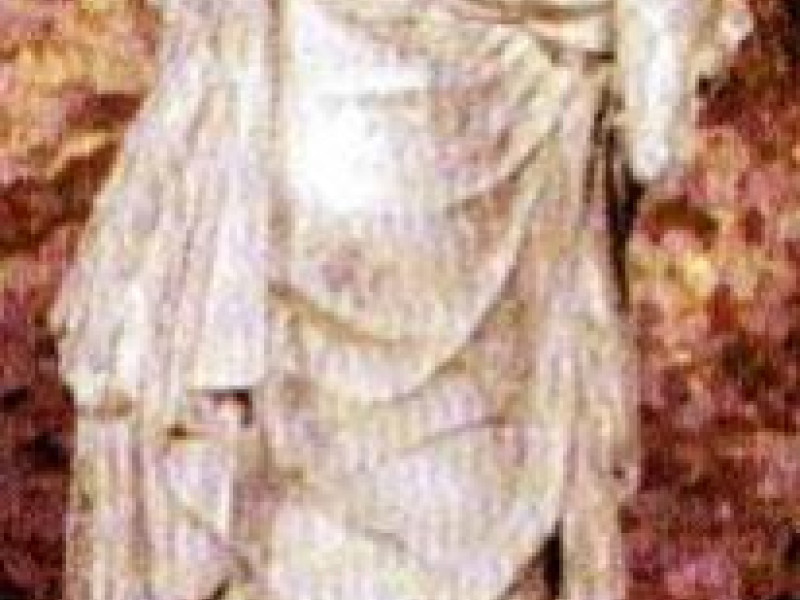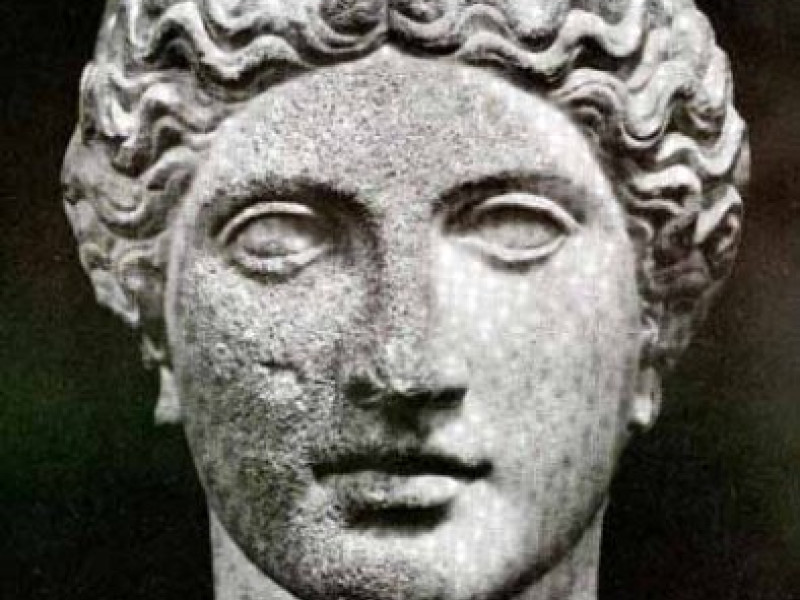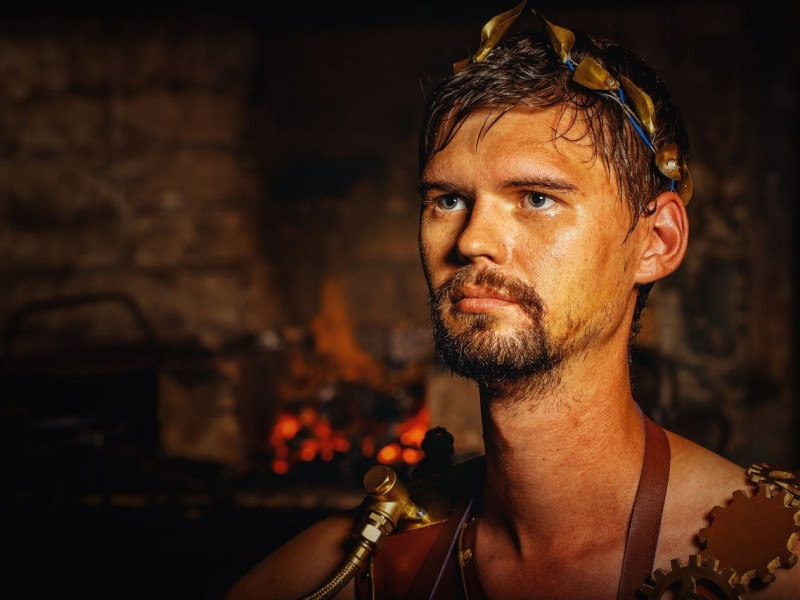Hestia
Hestia: The Greek Goddess of the Home and Protector of Families
Hestia, goddess of the hearth and home, was the patron of all things to do with families and the household. There was always a fire lit for Hestia in her temples. She was one of the early deities, but she wasn’t always considered as a part of the major gods of Olympus. Read to find out why Hestia is missing majorly from Greek myths.
Who Was Hestia in Greek Mythology?
Hestia was the goddess of the hearth and home in Greek mythology. Her Roman counterpart was Vesta, and they were essentially the same deity. In addition to hearth and home, she was the patron of families as well as their protector. Her realm was all that had to do with families and the household, similar to Hera.
She had a cult dedicated entirely to her, and there could only be priestesses. Men were not allowed in her temple. In her temples, there was a fire constantly burning, and it represented the constant presence of Hestia in the family life of Greek culture. She was one of the most important goddesses in Greek life.
She was the ultimate “matron goddess.” The worship of this deity was done mostly by mothers and women in general. To put out the fire of Hestia was to go against the moral code. Sadly, she didn't appear in many myths, so much of the information about her has been lost to time.
Etymology of Hestia, Translation of the Hearth Goddess
This is a direct translation because her name comes from the Greek word “hestia.” This word means either “altar, fireplace, or hearth.” So her name is perfectly apt for the goddess and her realm of control.
Origin of Hestia, the Protector of Greek Families
Hestia was one of the six children of the Titans Cronus and Rhea. She was originally the first-born daughter. But because of her angry father, who ate his children one by one, she eventually ended up being the youngest — in fact, she was the last one coming out of her father’s body when Zeus defeated him.
Myths About Hestia, Goddess of Family
Sadly, Hestia was absent from a lot of Greek mythology. So, we only know a little bit about who she was and what she represented, but that’s about it. One of the stories we know is her unique origin story.
How Was Hestia Born?
Hestia was one of the children born of Titans. Since the Titan Cronus overthrew his father, Uranus, he was constantly worried that his own children would do so too. When his wife Rhea got pregnant, he decided that he would swallow his children as they each came out of the woman. Hestia was the firstborn, and so he swallowed her first.
The other children were Poseidon, Hades, Demeter, Hera and Zeus. Rhea wanted to save her children, so she decided on a plan. The final child was Zeus, and she took him to an island to keep him safe. When she returned home, she gave her husband a rock swaddled in baby clothes to swallow.
Zeus grew up on the island, and then he returned to avenge his siblings. He defeated his father and forced him to throw up all the children, and he did, making Hestia turn out to be the youngest. The children split up realms of the universe, and Hestia was given the hearth and home. But Hestia remained virginal, and so she never had children of her own.
What Was Hestia Known For?
We know a little bit about Hestia because of a few poems written by the famous Greek poet, Homer, who wrote “The Iliad” and “The Odyssey.”. It gives us only a little insight into Hestia’s attributes. He mentioned Hestia twice in two separate poems.
In the second one, we can glean just how honored and respected she was among the people for her being in charge of the hearth and home. He writes:
“Hestia, in the high dwellings of all, both deathless gods and men who walk on earth, you have gained an everlasting abode and highest honor: glorious is your portion and your right. For without you mortals hold no banquet, where one does not duly pour sweet wine in offering to Hestia both first and last.”
Was Hestia One of the Twelve?
In Greek mythology, there were 12 main gods and goddesses in the pantheon. The eleven of them (plus Zeus), who are usually considered to be part of the group, are as follows:
Zeus
Hera
Poseidon
Hades
Ares
Aphrodite
Hermes
Apollo
Demeter
Athena
Artemis
Hephaestus
Hestia and Dionysus both “compete” for a place in one spot, and that spot changes depending on the records you look at. There is an engraving on the Greek Parthenon of the gods, but it is Dionysus who takes up a spot there in this case. It could show that she was not part of the twelve. But it could also be a portrayal of the fact that she was a modest god, who didn’t enjoy the “limelight.”
Hestia and Her Greatest Asset: Her Prized Virginity
Hestia was not the only goddess who valued her virginity and protected it, but she was one of the more famous ones. Her sister Artemis was also a virgin goddess. After she and her siblings defeated the Titans for control of the universe, she started to be “courted” by Apollo. Or rather, he started making sexual advances, and she was not into it.
At the same time, Poseidon was also interested, but she, again, was not happy with that. Many people wonder about Hestia’s children, but she never had any because she had no interest in that or in being with a man. So, she asked her brother Zeus if he would help her. She told him that she wanted to remain a virgin goddess, and he allowed it.
He told her to come and live with him and take over his household. That’s why she controlled the realm of the house and the hearth. And it was the central aspect of the home, especially in Greek culture, where family was deemed as the focal point of civilization. After all, it is not by chance that all the deities formed a large, complicated extended family!
Hestia and Priapus: Lustful God Attempts to Steal Virginity
In another situation, Hestia’s virginity was threatened again by a minor god named Priapus. This myth came from one of Ovid’s tales. The Titans were defeated by Zeus for control of the universe, but not all Titans were on the Titans’ side. Once the Olympians won in the battle, Rhea, Hestia’s mother, held a party to celebrate their victory.
Hestia was not the partying type, and so she left the party for a little while to get a break from everything. While she was wandering, she decided to take a little rest, and she fell asleep in the woods. The god Priapus, who was also known as a fertility god and for his insatiable lust, was wandering along the woods, drunk. When he saw the sleeping Hestia, he was overcome with lust and decided to have his way with her.
But just before he got to her, a donkey brayed, waking Hestia up. She realized what Priapus was about to do, she alerted the other gods, and they came running. When they found out what Priapus wanted to do, they cursed him to lie with satyrs for the rest of his days. And Hestia’s virginity was saved.
What Was Hestia’s Symbol?
Hestia’s symbol was the hearth and the constantly burning flame. The fires of Hestia’s temple had to always be lit. A fireplace or altar were other applicable symbols. Hestia represented many things about the Greek household and the woman’s place in it. Her choice of virginity could be representative of the culture’s desire for women’s purity.
And her lack of appearance in many myths could show her modesty as well. The culture of the Greeks at this time was very traditional and patriarchal, so these were the kinds of things expected of Greek women. Despite that, she was a very highly-revered goddess, and that was why her fires always remained lit. And it’s why she was often viewed as one of the major gods.
The Worship of Hestia, Goddess of the Household
The role of worshipping the goddess fell to the woman of the household. The ritual of lighting the fires was sometimes followed by the sacrifice of an animal. The fire could not be extinguished, or it would be seen as a sort of sacrilege or a lack of care about the most important space of the home. Even though Hestia was a domestic-focused goddess, she represented the importance of fire and all that it would bring to a community.
Most rituals were handled by women, but the rituals that would take place at public offices would be taken over by a man. Unfortunately, there weren’t many temples dedicated to Hestia. But all hearths, whether private or public, were dedicated to this special goddess. There was mention of a temple to Hestia located in Olympia.
There were some sporadic mentions of other temples and/or public altars in her name. But, after all, she needed no public display of worship. She was always present in the life of Greek households, and the first sacrifice they made always went to her. So, in a sense, every single home was her temple.
Hestia in Pop Culture
Just like her myths, Hestia doesn’t appear in much pop media. However, she or her name appears in:
The book series “Percy Jackson & the Olympians”
The tv series “Hercules”
The tv series “Xena: Warrior Princess”
Conclusion
Take a look at the main points about Hestia covered in the article above.
Hestia was the goddess of hearth and home in Greek mythology. She was the ultimate “matron” goddess, and she was one of the most important deities. Sometimes she appeared as one of the 12 major gods, but that place was sometimes taken by Dionysus, the god of wine.
Hestia’s Roman counterpart was the goddess Vesta. They basically had the same traits and mythology.
Hestia’s symbol was the hearth, fireplace, altar, or an ever-burning flame. The fire always had to be lit in her temples. Fire in this time period represented warmth, food, and comfort, and so Hestia was a very revered goddess.
The cult of Hestia was all about women, and in her temples, only women were allowed to enter or to act as priestesses.
Her name directly translates from the Greek word “hestia” meaning fireplace, hearth, or altar: A name that adapts perfectly to her prerogatives.
Hestia was one of the six children of the Titans Cronus and Rhea. She was the oldest, but after her father decided to kill them all, she became the youngest. In fact, she was the last to come out of his body after Zeus defied their father.
After that, Poseidon and Apollo began to pursue Hestia sexually, but she wasn’t interested. She asked Zeus to allow her to remain a virgin. He agreed, asking her to come to his home to take over the domestic duties. Thus, her realm became the household and all that goes on in it
On another occasion, a god named Priapus decided that he wanted Hestia. A donkey saved her by waking her up when he was getting near. The gods banished him, and Hestia continued being a virgin.
In pop culture, she appears in “Percy Jackson & the Olympians” as well as the tv show “Hercules” and “Xena: Warrior Princess.”
Hestia might be seen as having a very limited scope in terms of power, but the hearth was everything. At that time, it was the central part of domestic life, and fire as a symbol meant power and strength as well. Her representation as a modest, virginal woman could have been to promote those traits in Greek women. But she showed her strength in the fact that she continually fought for her virginity, and she didn’t let anyone else tell her to be different.
